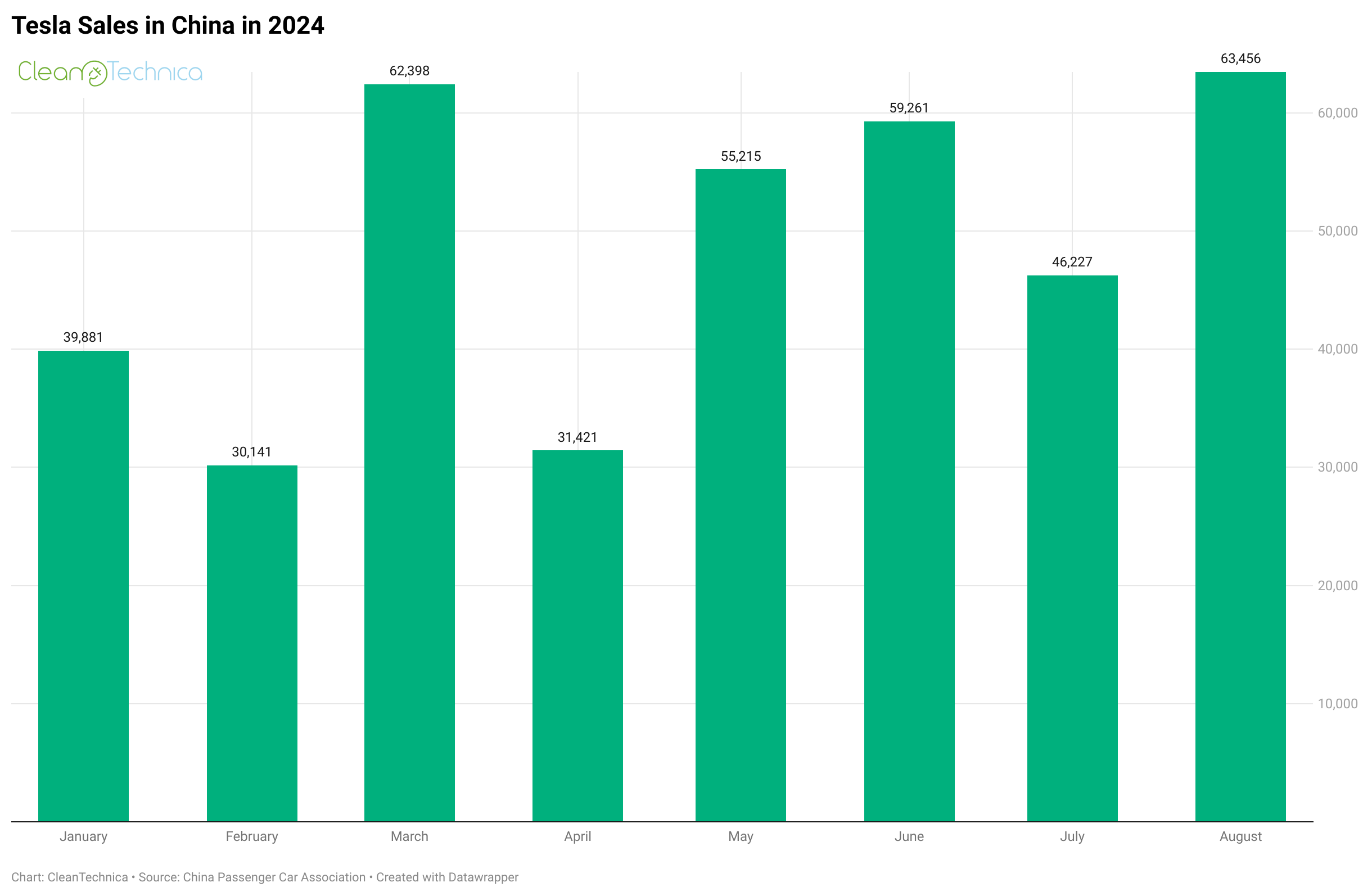Support CleanTechnica’s work through a Substack subscription or on Stripe.
Remember when Porsche decided to leverage its brand equity by going public? Just three years ago, the Porsche IPO was a stunning success. Things went swimmingly for a while, but now the wheels have come off the Porsche juggernaut, as the company has experienced a reversal of fortune that was completely unexpected when the decision to pursue an IPO was made.
Part of that reversal is a slowdown in Porsche sales in China, where domestic manufacturers are bringing wave after wave of new models to market. Porsche is not the only foreign manufacturer under pressure in China. Almost all of them have been slammed by changes in the marketplace as Chinese customers have developed an affinity for domestic brands, but Porsche has been hit especially hard.
Porsche Stumbles In The US
What has upset the apple cart most of all are changes in the US market. New tariffs have made Porsche vehicles uncompetitive and the company has no manufacturing presence in the US that it can lean into in order to blunt the effect of those tariffs.
In addition, the regulatory landscape has been turned upside down by an administration determined to promote internal combustion cars. Suddenly, electric cars have been caught up in the toxic culture wars sweeping America. That is bad news for Porsche, which has been prioritizing the development of EVs as part of its future plans.
We here at CleanTechnica have been enthusiastic supporters of Porsche’s electric car plans, beginning with the Mission E concept that became the Taycan. So we are a bit disheartened to learn that it is scaling back its electric car plans and saying internal combustion engines will be part of its product mix well into the future.
A Strategic Realignment
On September 19, 2025, Porsche said in a press release, “Porsche AG is resolutely continuing its comprehensive realignment. The Executive Board and Supervisory Board have decided on significant adjustments to the product portfolio in the medium and long-term period. The product range is to be specifically supplemented by brand-defining vehicle models with combustion engines.”
- The new SUV series above the Cayenne, which has so far been intended as all-electric, will initially be offered exclusively as a combustion engine and plug-in hybrid model due to market conditions.
- The existing combustion engine models will remain available for a longer period. New generations of successor models have been added to the Cycle Plan for these vehicle models.
The development of the planned new platform for electric vehicles in the 2030s will be rescheduled. - The existing all-electric model range is being continuously updated.
- These measures are intended to support financial results in future fiscal years but will lead to considerable additional depreciation and provisions in the short term.
Bloomberg reports that Porsche and its parent Volkswagen Group have cut their financial outlook for this year. In particular, Porsche is now saying it expects to take a €1.8 billion ($2.2 billion) hit to operating profit because it is pushing back the introduction of new electric vehicles. It now forecasts an operating return on sales of no more than 2%, which is down from the 5 to 7% projected earlier this year.
In its press release, the company announced a number of delays to its EV plans. In particular, a new lineup of battery-electric sport utility vehicles positioned above the Cayenne will now have internal combustion engines and hybrid powertrains when introduced. The battery-electric versions will come, but may be up to ten years away as things stand now. It also said, “Current models such as the Panamera and the Cayenne will be available with combustion engines and plug-in hybrids well into the 2030s.”
“This is the company’s response to the significant slower growth of the demand for exclusive battery-electric vehicles,” the Porsche press release said. “Nevertheless, the existing all-electric model range is being continuously updated. With the Taycan, Macan, Cayenne and the future two-door sports car in the 718 segment, there will be an attractive BEV offering.”
Oliver Blume had this to say: “These decisions build on the previously announced initiatives and help us to achieve a very balanced portfolio. This increases our flexibility and strengthens our position in a currently highly volatile environment. With a convincing mix of combustion engines, plug-in hybrids and battery-electric vehicles, we want to meet the entire range of customer requirements. In the medium term, this approach is intended to support our business model and strengthen our market position.”
The Search For A New CEO Has Begun
The news has greatly upset investors. The share price has dropped so low that the stock has now been removed from the DAX, Germany’s premier stock exchange. After replacing several executives, Porsche is trying to recover its momentum in the marketplace by adding more combustion engine and plug-in hybrid models while slashing costs and reducing its work force. It has also abandoned plans to manufacture its own batteries due to weak demand for electric vehicles.
The move by Porsche to realign its product plans has had a knock-on effect on the fortunes of Volkswagen Group, which has now lowered its forecast for operating return on sales this year to no more than 3%. Previously, the parent company had projected an operating return of 5%. The company said it will take a roughly €3 billion non-cash impairment related to Porsche’s moves.
Oliver Blume, who is chief executive officer of both Porsche and Volkswagen Group, is under pressure from investors to assign the job of running Porsche to someone else in an effort to turn the brand around. The search for a new leader has begun, Bloomberg reported last month, with the Porsche-Piëch owner family holding discussions with potential candidates.
According to sources, that search is now focusing on two individuals, one inside the company and another from outside. Volkswagen Group, in general, prefers to choose leaders from within its ranks. The last time it went outside the company, it hired Herbert Diess, who was a former executive at BMW. That arrangement didn’t last very long. Diess was tossed overboard in favor of Blume, who has been a company man his entire career.
Blume’s double role has been a source of concern for investors given that Volkswagen is also grappling with similar problems and is undergoing a major restructuring. At the rate things are going, he will be lucky if he doesn’t join Diess and Martin Winterkorn in the club of former Volkswagen CEOs soon.
The car business is not for the faint of heart. It is a bruising battle that can crush even the most qualified of candidates. With at least three years remaining before the US emerges from its self inflicted wounds, Porsche’s fortunes in America look to be especially bleak. Oliver Blume can hardly be blamed for not anticipating the MAGA maelstrom, but the Porsche-Piech family has a very low tolerance for leaders who fail to meet expectations. Presumably Blume knows that and is busy updating his resumé at this very moment.
Sign up for CleanTechnica’s Weekly Substack for Zach and Scott’s in-depth analyses and high level summaries, sign up for our daily newsletter, and follow us on Google News!
Have a tip for CleanTechnica? Want to advertise? Want to suggest a guest for our CleanTech Talk podcast? Contact us here.
Sign up for our daily newsletter for 15 new cleantech stories a day. Or sign up for our weekly one on top stories of the week if daily is too frequent.
CleanTechnica uses affiliate links. See our policy here.
CleanTechnica’s Comment Policy




